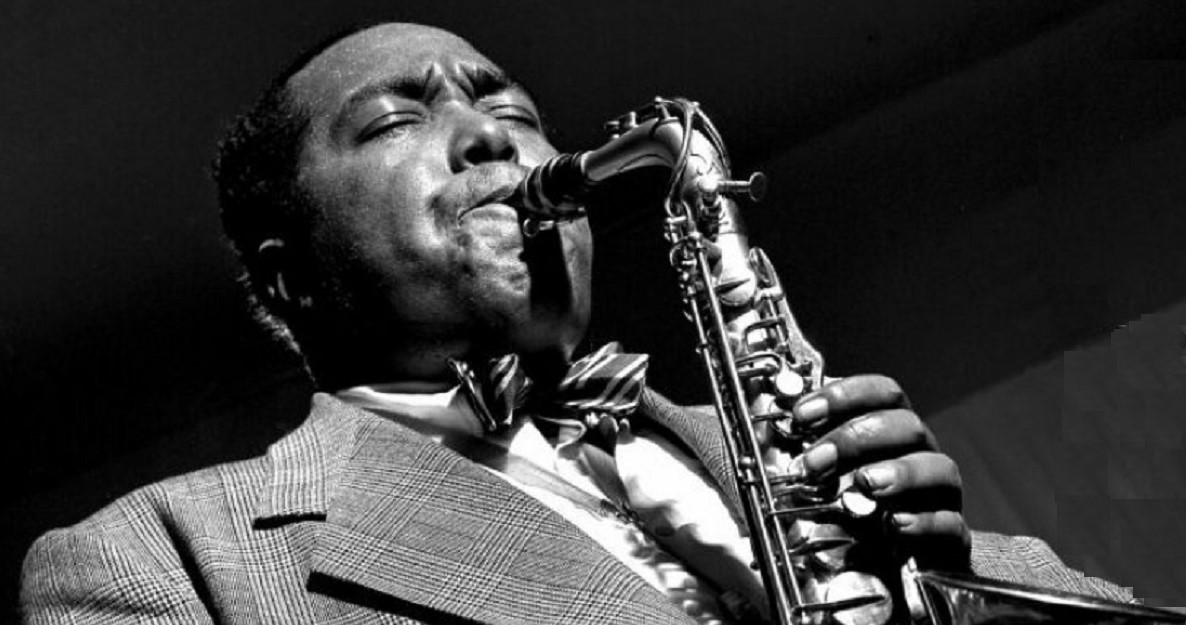
The Year of the Bird
September, 2021 — This year marks the 101st birthday of the architect of bebop, the legendary saxophone virtuoso Charlie Parker, also know as “Bird.” This innovative musical genius, also known by many as “Bird”, died at the early age of 35, but left a creative legacy that has inspired decades of musicians who followed him.
Starting this week, UNC Charlotte Department of Music spearheads “Charlie Parker 101,” representing a year-long educational tribute to the great Charlie Parker in celebration and song. JazzArts Charlotte is excited to be a community partner, as we celebrate with two collaborative programs, a 4-week adult Jazz Appreciation workshop, “The Life of Bird,” beginning September 27, and a Charlie Parker tribute weekend, “Bird Lives at the JAZZ ROOM”, in January 2022.
To share a bit about why Bird is considered one of the most influential jazz musicians of all time, we’ve attempted to highlight just some of the things that made him a legend.
One of the first well-known anecdotes about Parker is at age 16 while sitting in with a band, Count Basie Orchestra’s drummer Jo Jones threw a cymbal at him for sounding terrible on the bandstand. Parker’s reaction to that public laughter as he left the stage was emblematic of his life, pushing his limits with intense practice following that event, and improving his musicianship tremendously over the next several years.
Parker was both an icon for the hipster subculture and personified the jazz musician as an uncompromising artist and intellectual rather than just an entertainer. Wikipedia uses Parker’s picture as its visual definition.
As African American jazz musicians struggled to overcome white musicians’ appropriation of early jazz music and culture, Parker joined a group of young jazzmen, including Dizzy Gillespie and Thelonious Monk, whose goal was, in the words of Monk “to create something they can’t steal, because they can’t play it.”
Charlie Parker is said to remember the night bebop was born for him: an “ah-ha” moment in 1939 playing “Cherokee” when he moved beyond the traditional jazz chord changes and the music entered a new realm.
Parker’s Reboppers recording session in 1945 was marketed as the “greatest Jazz session ever,” with Dizzy Gillespie, Miles Davis, Curley Russell, and Max Roach. Today, there continues to be discourse around the details of that recording.
Parker also was a student of classical music. He brilliantly combined the two genres (jazz and classical), bringing the music to new heights. He envisioned meshing both jazz and classical elements as opposed to merely incorporating a string section into a jazz standard. The resulting 1949 album “Charlie Parker with Strings” has been considered a lush, romantic masterpiece – selections from this iconic album will be performed with strings at THE JAZZ ROOM in January!
Bird’s musical genius becomes even more astounding as we consider that, at age 16, Charlie Parker was in a car crash – a near-death experience that left him fighting painkiller addiction for the rest of his life.
A life lived so dramatically has been recognized in film, song, sculpture, spoken word, opera, festival, nightclub, book, and more. Celebration plans abounded a year ago, for Parker’s centennial, with many events being sadly postponed due to the pandemic.
“Charlie Parker 101” Year-long Tribute
UNC Charlotte is endeavoring to ensure the enthusiasm, story and music of this legend doesn’t get skipped over. “We are looking forward to a multifaceted exploration of Charlie Parker’s genius,” says Dr. Will Campbell, saxophonist and head of the Jazz Studies Program at UNC Charlotte. “Beginning with a visit from Branford Marsalis on August 30 – the day after Bird’s birthday – we have developed an exciting line-up of events and programs. We are delighted to work with our cultural partners, the Harvey B. Gantt Center, Central Piedmont Community College, and especially JazzArts Charlotte to give Charlie Parker’s brilliance its due.”
Charlie Parker continues to be a primary influence on so many jazz musicians today—and so many other musicians, artists, and writers, too.” Reflects Dr. Kelsey Klotz, lecturer in UNC Charlotte’s Department of Music and instructor for the JazzArts upcoming 4-week workshop (beginning September 27). “Though his career was relatively short, and though he didn’t receive the broader recognition he should have during his life (because he was relegated to racist stereotypes and was operating within a mostly segregated music industry), he did so much to define what it means to be an artist.”
Learn more about opportunities to celebrate through UNC Charlotte.